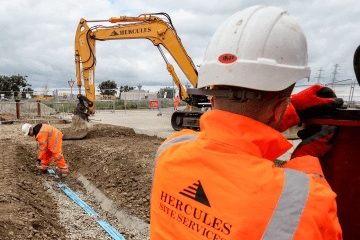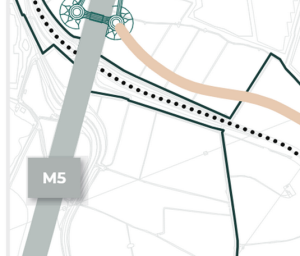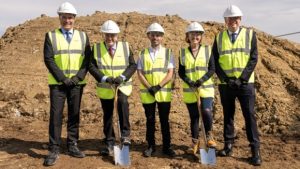Recruitment firm to work on £44bn rail project

A recruitment firm which specialises in civil and infrastructure projects has landed a major five year contract.
Hercules Site Services has announced that it has been awarded a five-year contract, following a rigorous and highly competitive tender process, with Balfour Beatty Rail Limited.
The deal marks the launch of a new division within Hercules’ Labour Supply business, focused on the provision of specialist rail labour on live track to clients.
The Gloucestershire business will be involved in a £44bn, five-year plan for the railway in England and Wales, which will run from next April.
Network Rail’s key priorities during this five-year period are to deliver upgrades that will tackle climate change and improve train performance from current levels.
Balfour Beatty Rail has been awarded major contracts to deliver work on behalf of Network Rail, Transport for Wales, and London Underground and Hercules is one of six suppliers contracted to support on labour.
Hercules chief Brusk Korkmaz said: “This contract provides Hercules with an exciting new revenue stream which has strong potential for continued growth.
“While we have previously provided personnel to deliver heavy civils and earthworks to pre-enable rail-based projects, this contract will see us recruit specialist rail labour on live track on behalf of a customer for the first time, opening up a wider range of opportunities for Hercules in the rail industry. Given that we have worked with Balfour Beatty Group for many years, this news also demonstrates our ability to grow our total customer value due to the quality of the services we provide.
“Additionally, it is important to highlight that the recent government announcement about the future of HS2 has no impact on our ongoing contracts for Phase One of HS2 between London and Birmingham. Our work at this project continues to build momentum as we supply more contractors to site and with the launching of our new technical rail specialism, we are well placed to capture more value from future rail infrastructure projects.”









